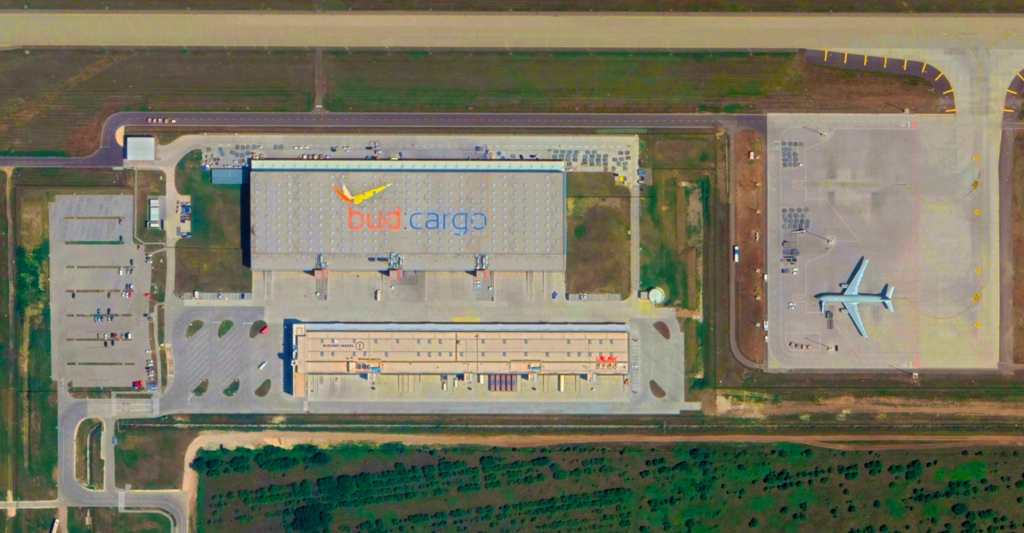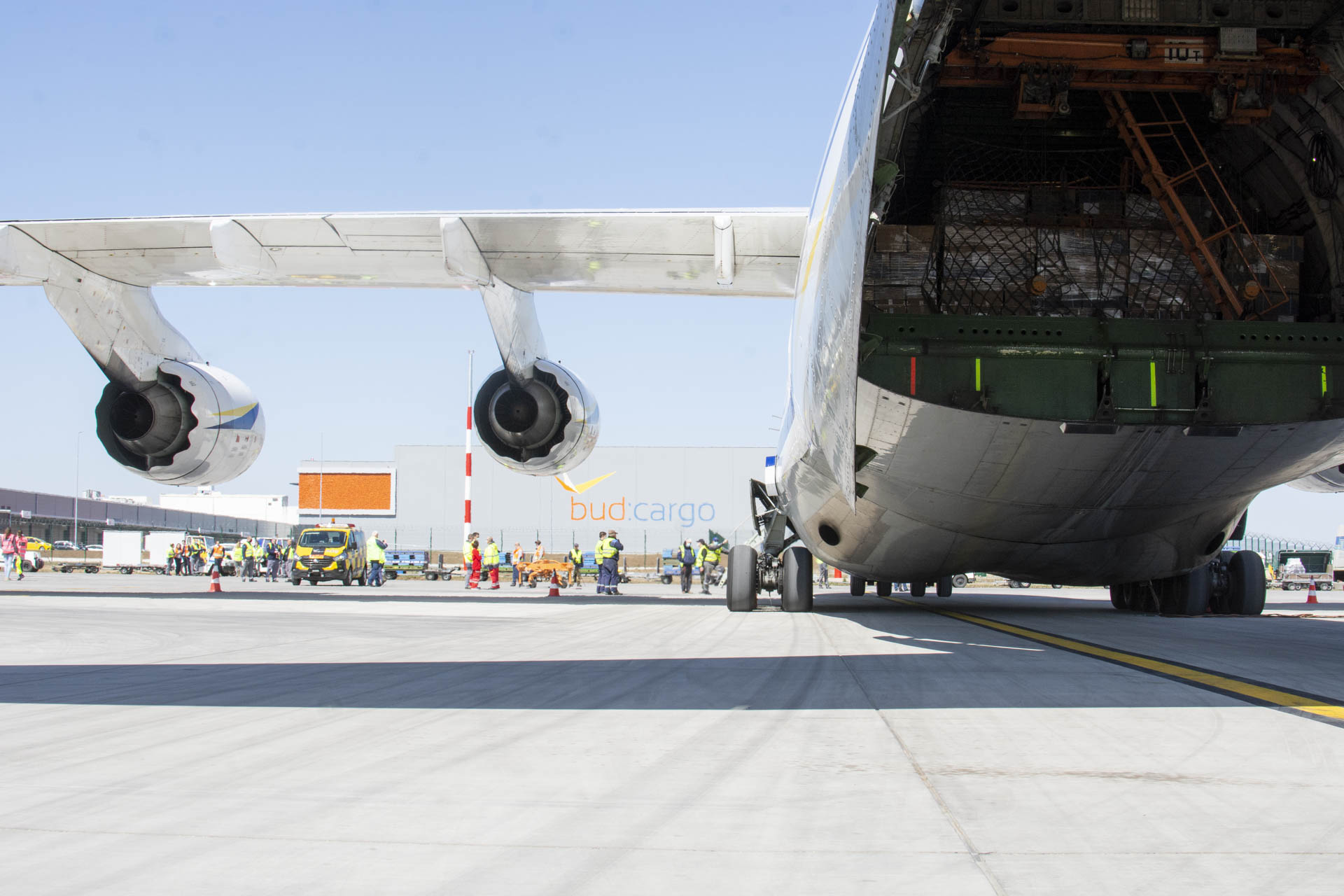Sponsored: Budapest Airport takes aim at cargo
02 / 08 / 2021

Source: Budapest Airport
Budapest Airport’s René Droese, chief airport development officer, and József Kossuth, head of cargo outline how the airport is aiming to grow its cargo business in the coming years.
How is Budapest Airport’s (BUD) cargo business currently performing?
After the steady cargo traffic development at BUD in the last five years as result of conscious community focused cargo development work and efforts to develop a regional cargo hub in Central Eastern Europe (CEE) the cargo business and traffic stood stable during 2020 without fall-back and started booming its last quarter.
The pace and trend of cargo development at BUD are in line with the large cargo and freighter friendly airports and in the first half of 2021 BUD handled 86,798 tons cargo, which is a 35.9% year-on-year increase and an all-time record for the six month period.
In the second quarter of 2021 the cargo volume growth rate was 53.9% compared to the same quarter of 2020, which is the strongest quarterly cargo volume of the airport.
Large, market-leading players like Alibaba voted for BUD and selected the airport for air cargo gateway functions in CEE. The e-commerce giant has so far transported more than 2.5m shipments per month since it started operations via BUD.
Several other new cargo routes have also opened in the last year and a half, despite the COVID-19 pandemic.
The Cargo City handled 157,402 tons of air cargo in July 2020 – June 2021 and we have excellent full-freighter partners at BUD like Cargolux, Turkish Cargo, Qatar Airways Cargo, Korean Air Cargo and China Eastern (Shanghai Airlines).
Certainly the strong freighter presence at BUD has been very important to the success of our cargo business since the outbreak of COVID and resultant global reduction in bellyhold capacity.
Freight forwarders, like cargo-partner, CECZ/UTLINK, also started operating their own cargo flights to BUD. Great things are happening around BUD Cargo.
The airport has announced several large cargo projects over the last few years, can you provide an overview?
The airport has a strong focus on cargo, it is part of the long-term strategy as key element of the airport’s development.
The cargo partner portfolio of the airport is wide and colourful including daily hub and feeder flights of all the big integrators, which also have express logistic facilities at BUD.
DHL Express and FedEx/TNT Express opened brand new infrastructure at BUD in 2017 measuring 16,000 sq m and there has been further expansions since then.
The flagship of the non-integrator development is the state of the art, world-class level new cargo handling centre at BUD – BUD Cargo City.
The facility opened in January 2020 with 21,200 sq m of new cargo handling areas, 11,600 sq m of new forwarder buildings and a new cargo apron with two code F stands for freighters.
The new location is close to the passenger terminal area and gives perfect operational set up for the belly cargo handling too.
The facility includes 1,000 sq m of special cargo storage, 2-8, 15-25 degrees Celsius, freezer storage, DGR, AVI, VAL, VUL cargo rooms, modern handling equipment, top technology X-RAY (Dual view, oversized), full Wi-Fi and CCTV coverage.
It has easy landside access, direct connection to the motorway network of Hungary and easy access to the neighbouring countries as well as 24/7 airport ops, 24/7 cargo handling, 24/7 digitised customs clearance.
We feel all this provides a very favourable operational environment for air cargo at BUD and the last year and a half since opening BUD Cargo City has confirmed this.
We have a long list of to-dos in our cargo department and there is ongoing work on several other cargo developments at BUD together with our committed cargo community.
The IATA CEIV Pharma implementation with a community approach is ongoing and will be finished in 2021 and we are working on a new cloud-based cargo community system for the market, and several other projects are in the pipeline.
Why is Budapest Airport targeting cargo, why does it believe it is an attractive cargo airport?
Our air cargo industry is very important as an organic, key element of logistics – the logistics of the world, Central Eastern Europe and Hungary too.
It also plays a key role in supplying the economy and the society, for example our actual cargo traffic at BUD creates approximately
1,800 workplaces directly and 10,000 indirectly.
We at BUD Cargo are doing our very best to be an efficient, continuously and sustainably developing, innovative air cargo logistics solution provider on the market.
Cargo is a non-passenger related and developing business with a bright future.
It is powered by developing trends like the booming e-commerce market, which is large client of the air cargo industry.
The catchment zone of BUD includes the entire CEE region, Poland, Ukraine, Romania, Moldavia, Bulgaria, Slovakia, Czech Republic, Serbia, Croatia, Slovenia, Austria, part of Germany, Hungary and even more countries has lots of air cargo volumes.
Other sectors in the region with a large demand for air cargo in the region include automotive (recently boosted by several projects in e-vehicle manufacturing), electronics, ICT, machinery, pharmaceuticals and high-quality agricultural products.
What are the future plans for cargo at Budapest Airport?
We would like to continue to develop our cargo capacities and remain a strong and attractive representative of the air cargo in Central Eastern Europe.
We would like to support the implementation of new cargo technologies, sustainable solutions to support the air cargo industry in our catchment zone and with a strong co-operation with the cargo community and our partners to develop together our air cargo industry
We would like to expand our BUD Cargo City with further phases in the near future and develop the air cargo connectivity of the region via BUD.
We would like to expand all elements of our cargo infrastructure, more cargo apron capacity, handling warehouses, forwarder facilities with special focus on perishables, pharma and e-commerce.
We have five sister airports in China and have recently started work on a so called “Air Silk Road” using BUD and Zhengzhou Airport in China (CGO) for distribution and collection of cargo flows from/to China, general cargo and e-commerce too.
How do you think airports need to evolve in the future to prove attractive to the air cargo sector?
As well as the obvious global trends and main focus points of cargo development work, such as digitisation, automation, sustainability and reducing environmental footprint, we can also emphasise two others topics where we feel an airport can do a lot for the air cargo industry and its community.
First of all, an airport has to act as a host, a promoter, and a bit of a ‘protector’ of its air cargo industry by being active, proactive, cooperative and supportive towards the problems, challenges, innovation, development of its air cargo community and the cargo eco-environment.
The airport has to take active role and work in the community investing energy and resources into it in the interest of the cargo development. No question, our door has to be always open for our partners.
The other important issue is to spend time and energy and to participate on the logistic life, understanding the demand and the trends – seeing those with the eyes of the clients.
If you see the every-day problems, challenges of the cargo stakeholders, not only inside but outside the airport; for instance, the freight forwarders, shippers, you can help more in finding attractive solutions with your air cargo operation. Success doesn’t just come to you, you have to work hard to get it as an airport too.















